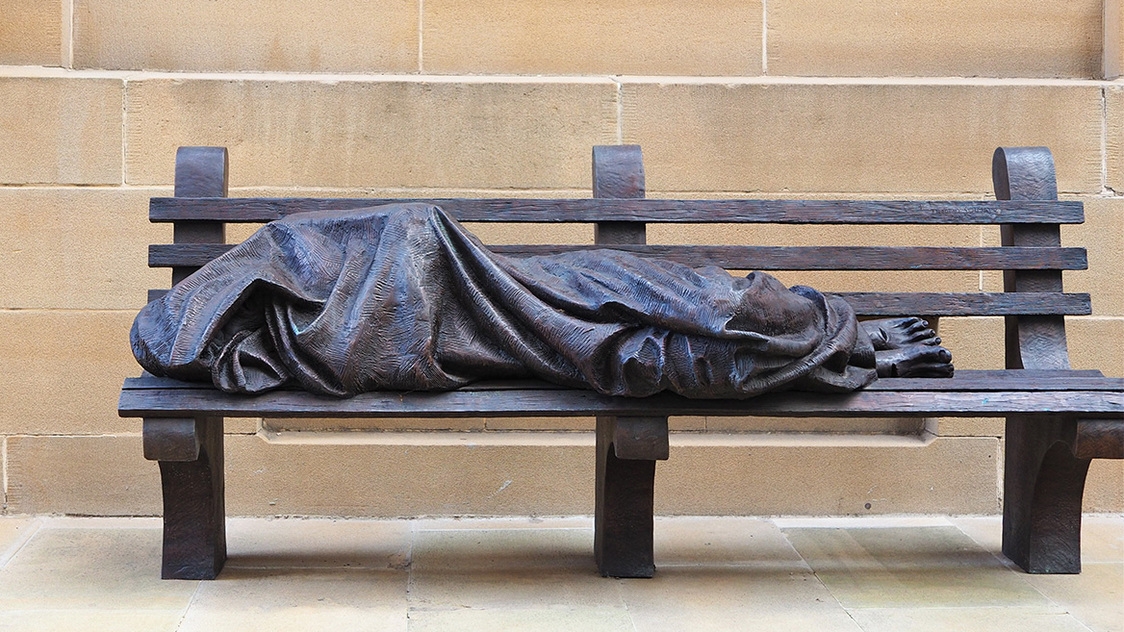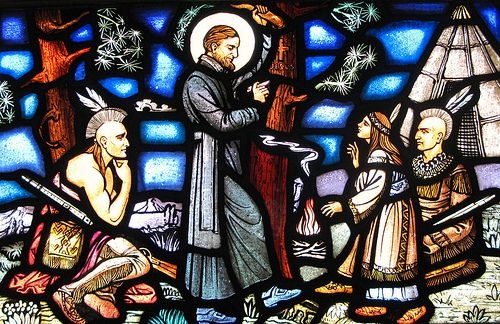These reflections are a result of more than 40 years of ministry as a Roman Catholic priest. Most of these years I spent in the Diocese of Charlotte which covers Western North Carolina. Now I am retired, and live in Medellín, Colombia where I continue to serve as a priest in the Archdiocese of Medellín.

But God said to him, 'You fool, this night your life will be demanded of you; and the things you have prepared, to whom will they belong?'Thus will it be for the one who stores up treasure for himself but is not rich in what matters to God. (Lk 12:13-21)
https://bible.usccb.org/bible/readings/102323.cfm
To be rich in what matters to God calls us to see the world through the eyes of Christ and to adopt the values of the Kingdom where the poor have the seats of honor—definitely a challenge to the church in every age.

We give thanks to God always for all of you, remembering you in our prayers, unceasingly calling to mind your work of faith and labor of love and endurance in hope of our Lord Jesus Christ.
https://bible.usccb.org/bible/readings/102223.cfm
Work of faith . . . labor of love . . . endurance in hope. Saint Paul sure has a way with words! This ancient letter to the community at Thessaloniki is probably the oldest surviving Christian writing. We are grateful that Saint Paul put pen to paper. Of course remembering and giving thanks are essential to the life of “faith, hope and love.” It is what we do when we celebrate the Eucharist.

It was not through the law that the promise was made to Abraham and his descendants that he would inherit the world, but through the righteousness that comes from faith. For this reason, it depends on faith, so that it may be a gift, and the promise may be guaranteed to all his descendants, not to those who only adhere to the law but to those who follow the faith of Abraham, who is the father of all of us. (Rom 4:13, 16-18)
https://bible.usccb.org/bible/readings/102123.cfm
As Saint Paul acknowledges, all believers are descendants of Abraham, for Abraham, is the “father of us all.” Mother Laura Montoya (1874-1949) also believed that we were all children of Abraham. In her ministry to the indigenous peoples of Colombia, Mother Laura worked to end racial discrimination for which she was criticized. In the consistory (February 11, 2013) in which Pope Benedict XVI approved her canonization, he also announced his resignation from the papacy. It was his successor, Pope Francis, the first pope from the Americas, who canonized Mother Laura on May 12, 2013. Thank you, Mother Laura, and thank you, Pope Francis.

Are not five sparrows sold for two small coins? Yet not one of them has escaped the notice of God. Even the hairs of your head have all been counted. Do not be afraid. You are worth more than many sparrows. (Lk 12:1-7)
https://bible.usccb.org/bible/readings/102023.cfm
There’s an old spiritual that says the whole world is in God’s hands, that you and me, we’re cared for more than we’ll ever know. Is the human race simply a failed experiment? The gospel reminds us to not be afraid, in spite of all our failings, God’s hands still hold us and will never let us go.

For we consider that a person is justified by faith apart from works of the law. Does God belong to Jews alone? Does he not belong to Gentiles, too? Yes, also to Gentiles, for God is one and will justify the circumcised on the basis of faith and the uncircumcised through faith. (Rom 3:21-30)
https://bible.usccb.org/bible/readings/101923.cfm
Unity in salvation for Jews and Gentiles is a hallmark of Saint Paul’s preaching. God belongs to everyone, Jews and Gentiles, says Saint Paul. John de Brébeuf and Isaac Jogues and their companions (d. 1642-1649) were French Jesuit missionaries to North America. They believed that God belongs to the indigenous peoples as well.



